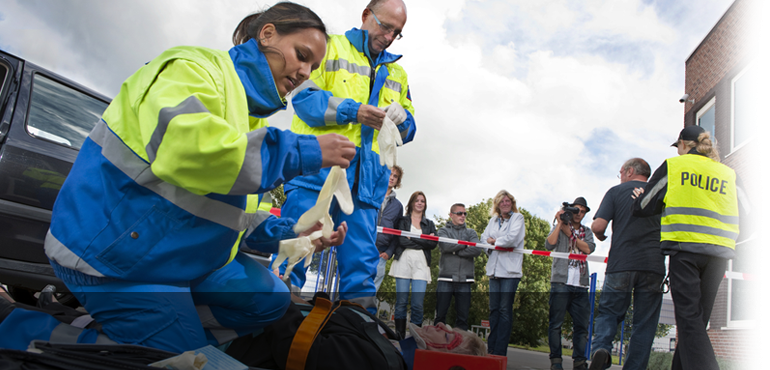| Toll Free : 1844 495 7333(injury hotline- new cases only) | |
| Text a Personal Injury Lawyer 24/7 and get instant help.TM (416 931 5015) | |
| Head Office : 905 495 7333 |
How Mediation Works In The Claims Settlement Process
October 20, 2017When Brampton personal injury lawyers first evaluate a case in their initial, no-obligations interaction with a client, they ensure that they provide a comprehensive and genuine assessment.
This allows the claimants and their families to make an informed choice about the merits of the claim and what their chances of getting a successful outcome are.
Every accident is unique and can have a different impact on the life of the injured victim. Some serious injuries can be life-altering or life-threatening while others may result in a long period of disability, inability to work, be mobile or enjoy life as the person previously did.
Monetary compensation would obviously never be able to restore completely what the person lost due to injuries, but it serves to make life a little more comfortable for the injured and their families. In tort law, the role of compensation is restorative or corrective, to attempt to restore the person to prior status and/or correct the wrong done to them.
Not all personal injury claims go to trial. There has been a strong movement away from the expensive, time-consuming and adversarial court process globally. In fact, more than 90% of personal injury cases are settled out of court, through a process of negotiations and mediation. Hence, personal injury lawyers who are involved in such processes have to be skilled negotiators. Often, a neutral mediator is chosen to moderate the proceedings and ensure that a balance is maintained.
What Is Mediation?
Mediation is undertaken by skilled, neutral persons with specific training in mediation, whose role is to ensure that a mutually agreed upon solution is found to a dispute by all the parties involved.
This occurs only when both parties request mediation voluntarily and agree to share the costs equally. It ensures that both parties have the opportunity to present their side of the dispute without the pressure of winning or losing. It also gives both parties the opportunity to decide the outcome of their case without having a judge/jury control it.
Preparing for Mediation
As experienced Brampton car accident lawyers and Brampton slip and fall injury lawyers, we take the time to thoroughly explain the mediation process to our clients. This also involves preparing the client for it and ensuring that it remains comfortable and useful.
To this end, we convey all the necessary information about the mediation process to our clients, including:
- Possibility of hearing statements that you disagree with
- Facing polarized views in the beginning
- The need for patience, as the process may be long
- Avoiding frustration, dismay, anger, disappointment etc
- Mediator will remain strictly neutral, won’t take sides
- Keeping an open mind, readiness and willingness to compromise
- Not taking extremist positions
- Maximize the opportunity to present your case and hear the other side out
- Being fully prepared with facts, figures and evidence
- Undertaking pre-mediation meetings and conferences
- Not focusing on emotions
Mediators don’t have the power or authority to make a final settlement, but they play an important role in ensuring an even playing field for both sides.
How Mediation Works In The Claims Settlement Process
October 20, 2017When Brampton personal injury lawyers first evaluate a case in their initial, no-obligations interaction with a client, they ensure that they provide a comprehensive and genuine assessment.
This allows the claimants and their families to make an informed choice about the merits of the claim and what their chances of getting a successful outcome are.
Every accident is unique and can have a different impact on the life of the injured victim. Some serious injuries can be life-altering or life-threatening while others may result in a long period of disability, inability to work, be mobile or enjoy life as the person previously did.
Monetary compensation would obviously never be able to restore completely what the person lost due to injuries, but it serves to make life a little more comfortable for the injured and their families. In tort law, the role of compensation is restorative or corrective, to attempt to restore the person to prior status and/or correct the wrong done to them.
Not all personal injury claims go to trial. There has been a strong movement away from the expensive, time-consuming and adversarial court process globally. In fact, more than 90% of personal injury cases are settled out of court, through a process of negotiations and mediation. Hence, personal injury lawyers who are involved in such processes have to be skilled negotiators. Often, a neutral mediator is chosen to moderate the proceedings and ensure that a balance is maintained.
What Is Mediation?
Mediation is undertaken by skilled, neutral persons with specific training in mediation, whose role is to ensure that a mutually agreed upon solution is found to a dispute by all the parties involved.
This occurs only when both parties request mediation voluntarily and agree to share the costs equally. It ensures that both parties have the opportunity to present their side of the dispute without the pressure of winning or losing. It also gives both parties the opportunity to decide the outcome of their case without having a judge/jury control it.
Preparing for Mediation
As experienced Brampton car accident lawyers and Brampton slip and fall injury lawyers, we take the time to thoroughly explain the mediation process to our clients. This also involves preparing the client for it and ensuring that it remains comfortable and useful.
To this end, we convey all the necessary information about the mediation process to our clients, including:
- Possibility of hearing statements that you disagree with
- Facing polarized views in the beginning
- The need for patience, as the process may be long
- Avoiding frustration, dismay, anger, disappointment etc
- Mediator will remain strictly neutral, won’t take sides
- Keeping an open mind, readiness and willingness to compromise
- Not taking extremist positions
- Maximize the opportunity to present your case and hear the other side out
- Being fully prepared with facts, figures and evidence
- Undertaking pre-mediation meetings and conferences
- Not focusing on emotions
Mediators don’t have the power or authority to make a final settlement, but they play an important role in ensuring an even playing field for both sides.








